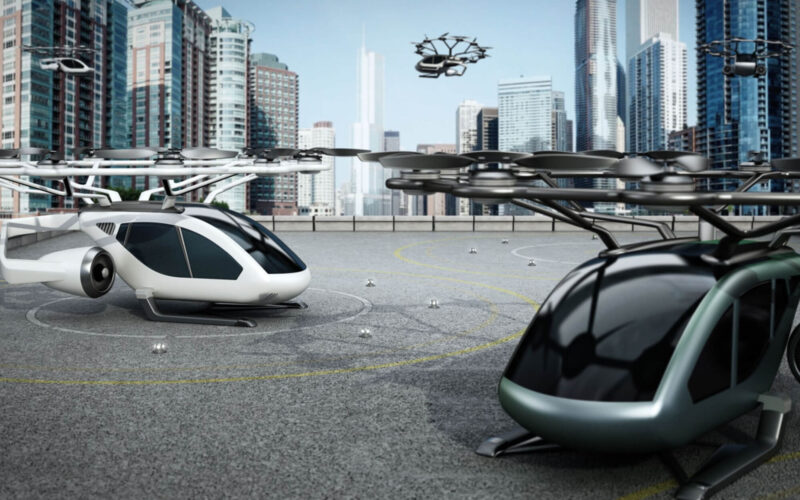Will flying electric taxis ever be a viable way for passengers to make short trips? The head of major aircraft leasing firm AerCap is not so sure, judging by comments he made at a Eurocontrol conference in Brussels on October 4, 2022.
Asked whether he was planning to buy regional hybrid or electric aircraft, Gus Kelly, CEO of AerCap, said there were some major obstacles.
“The challenge at the moment is you can only get four seats – three passengers and a pilot, so it’s very hard to see you could ever make money out of that,” he told the conference.
He also queried whether such aircraft would ever be allowed to land airside at airports, where they will be competing with existing traffic. Kelly dismissed the concept of having eVTOLs picking up people from the top of skyscrapers in cities, such as London or Sao Paulo, saying it was unlikely the owners would allow random passengers to go up to the top floor of their building.
While other leasing companies have invested into electric vertical take-off and landing aircraft (eVTOL), with Avolon ordering 500 units from Vertical Aerospace to place with customers for example, Kelly remains skeptical.
“I don’t see it getting certified without a pilot on board,” Kelly said. “They’re big units as well, you don’t want one of these things landing inside your front garden.”
Kelly’s comments came a day after Boeing-backed Wisk unveiled the sixth generation of its autonomous electric taxi, which it hopes to get certified and bring to market.
However, Kelly acknowledged the eVTOL industry has to start somewhere and they could be useful in terms of transporting freight.
“I do think eVTOLs have a role to play, but maybe not transferring human cargo. There could be a role for them to replace vans and on the road. For sure, there is some utility for them, but not necessarily for passengers anytime soon.”
Despite research into electric and hydrogen technologies, Kelly said he expected the aviation industry to be powered by hydrocarbons for a long time to come, noting that a lot depended on the engine manufacturers.
“It’s an inconvenient truth of the industry. No engine manufacturer is working on any engine that will come to market before 2040 and operate on anything other than Jet A1. So that’s what we’re going to buy,” he said.
“I don’t think in my working life, and I should be working for three more decades, that we’re going to see anything other than Jet A1 being the main source of propulsion, or a derivative of it,” he said, referring to sustainable aviation fuel.

